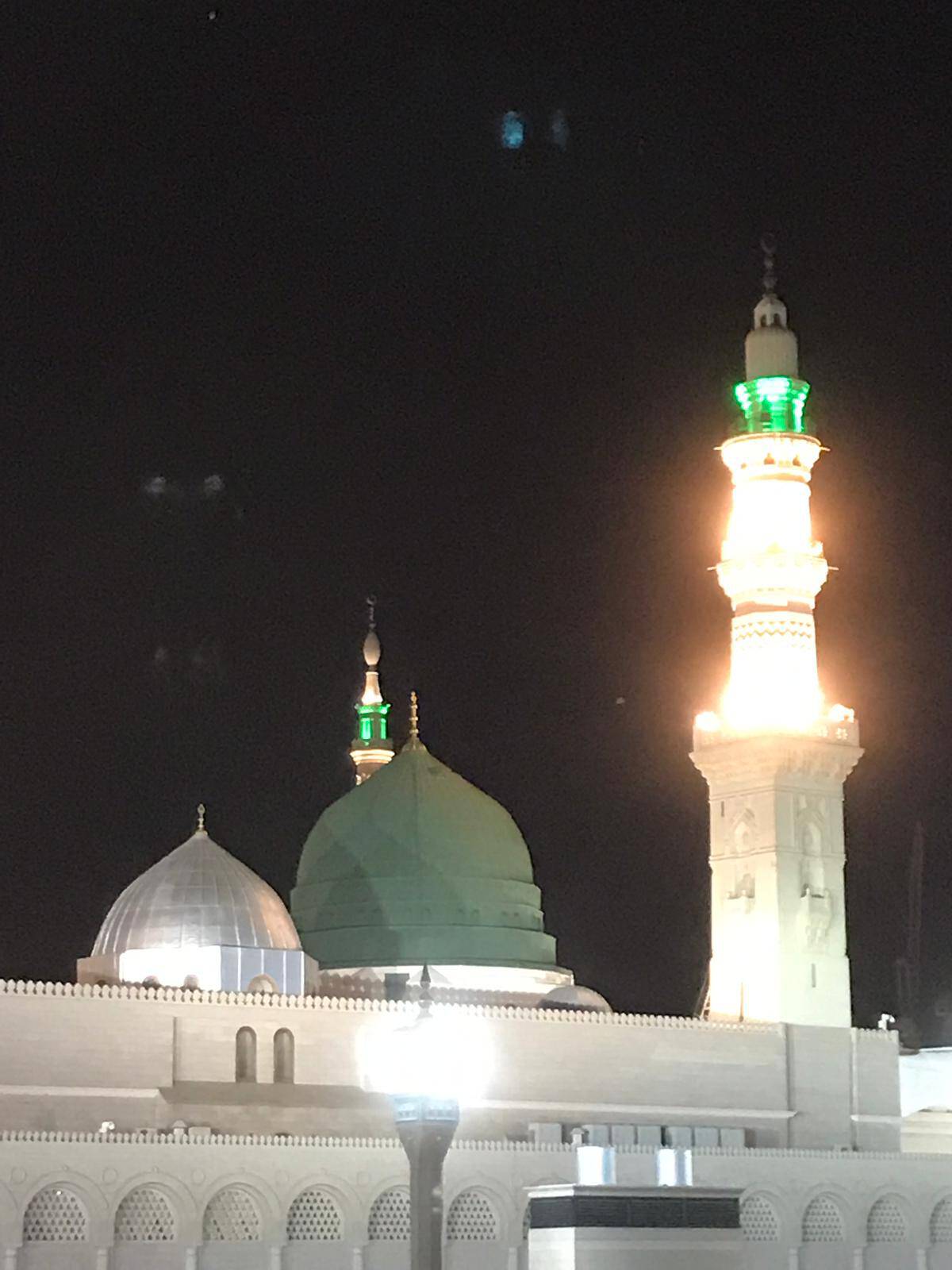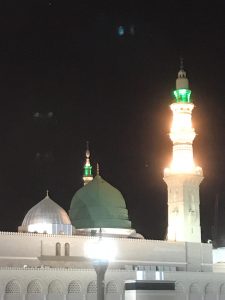Hajj Reflections 8 – Madinah: Lessons from the Seerah

Allah’s Special Plan
Lessons from the Seerah
The benefits of reciting darood
When travelling to Madinah, as the Prophet (peace be on him) did, we do not experience hardship as he did, but we can utilise that time for dhikr. One of the best types of dhikr is to say salaam upon him. Ubayy bin Ka’b (may Allah be pleased with him) reported:
I said: ‘O Messenger of Allah (peace be on you), I frequently invoke Allah to elevate your rank. How much of my supplications should I devote to you?’ He said, ‘You may devote as much as you wish.’
When I suggested a quarter, he said, ‘Do whatever you wish, but it will be better for you if you increase it.’
I suggested half, and he said, ‘Do whatever you wish, but it will be better for you if you increase.’
I suggested two- thirds, and he said, ‘Do whatever you wish but it will be better for you if you increase it.’
I said, ‘Shall I devote all my supplications invoking Allah to elevate your rank?’ He said, ‘Then you will be freed from your worries and your sins will be forgiven.’ (Tirmidhi).
So never underestimate the power of saying ‘salallahu alayhi wasalam’. By reading it with full understanding, concentration and dedication all your concerns will be looked after inshallah.
Madinah is protected
Abu Huraira (may Allah be pleased with him) narrated that Allah’s Messenger (peace be on him) said:
Verily, Belief returns and goes back to Madinah as a snake returns and goes back to its hole (when in danger). (Bukhari)
It means Madinah is protected as is Makkah. Ibrahim (peace be on him) made du’a for Makkah and the Prophet (peace be on him) made dua for Madinah.
A’isha (Allah be pleased with her) reported, ‘When we came to Madinah, and it was an unhealthy, uncongenial place, Abu Bakr fell sick and Bilal also fell sick; and when Allah’s Messenger (peace be on him) saw the illness of his companions, he said:
O Allah, make Medina as congenial to us as you made Mecca congenial or more than that; make it conducive to health, and blesses in its sa’ and in its mud, and transfer its fever to al-juhfa’. (Muslim)
The hostility in Makkah
We only understand the special position of this small town and its people by studying its background and the changes the Prophet’s (peace be on him) mission created on migrating to Madinah.
The humiliation at Taif
Allah’s plan brings benefits in unexpected ways
In the Prophet’s (peace be on him) mind it never occurred to him that a small city like Yathrib (Madinah) would make a big difference. He was focusing on big cities and important people, he never thought that anything would come from Yathrib.
But it may be that you dislike something while it is good for you, and it may be that you like something while it is bad for you. God knows, and you do not know. (2:216)
Virtues of visiting the Prophetic mosque
Abu Huraira narrated that the Prophet (peace be on him) said:
Do not set out on a journey except for three Mosques i.e. Al-Masjid-AI-Haram, the Mosque of Allah’s Messenger (peace be on him), and the Mosque of Al-Aqsa, (Mosque of Jerusalem). (Bukhari)
Ibn ‘Umar (Allah be pleased with them) reported that Allah’s Apostle (peace be on him) said:
Prayer in this mosque of mine is better than a thousand prayers (observed in other mosque.) Besides it, except that of Masjid al-Haram. (Muslim)
Abdullah bin Zaid Al-Mazini narrated that Allah’s Messenger (peace be on him) said:
Between my house and the pulpit there is a garden of the gardens of Paradise. (Bukhari)
Shaykh Haytham Tamim – Tafseer Class 4th July 2022
- Connection and self-discovery
- Alone yet united
- Sincerity and obedience
- Transformation and tests
- Choosing between your will and Allah’s
- Waiting, being and having nothing
- Focus and forgiveness
- Emerging from humiliation
- Goodness from pain
- Have deep trust
Recommended Posts

The truth is more powerful than lies
July 26, 2024

Global IT outage. When systems go down…
July 19, 2024


